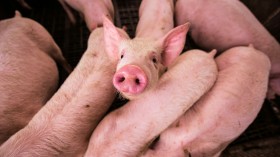Plastic pollution is a global problem that threatens the general environment, ecosystem, and public health. As the accumulation of plastic waste on Earth continues, both terrestrial and marine habitats are polluted by these manufactured products. Millions of animals are reportedly killed in the process every year due to exposure to chemicals and consumption of the materials themselves.
Plastic Pollution Problem
![Plastic Pollution: Scientists Include Spores of Plastic-Eating Bacteria ‘Bacillus Subtilis’ to Develop 'Self-Digesting Plastic' [Study] Plastic Pollution: Scientists Include Spores of Plastic-Eating Bacteria ‘Bacillus Subtilis’ to Develop 'Self-Digesting Plastic' [Study]](https://1471793142.rsc.cdn77.org/data/images/full/70396/plastic-pollution-scientists-include-spores-of-plastic-eating-bacteria-bacillus-subtilis-to-develop-self-digesting-plastic-study.jpg?w=820)
(Photo : Photo by Dustan Woodhouse on Unsplash)
In recent years, there have been multiple measures conceptualized and applied to mitigate the impact of excessive plastic debris ending up in dump sites, population centers, and even in the world's oceans. Since plastics cannot be fully destroyed, they are only broken down into smaller fragments, called microplastics and nanoplastics, which can enter even inside our bodies.
The plastic pollution problem involves the uptick of plastic production over the past several decades. Approximately 36% of all plastics created are used in packaging, and 85% of these materials ends up in landfills or as unregulated waste. According to the United Nations Environment Programme (UNEP). The plastic issue has persisted despite the implementation of plastic recycling measures.
Now, a new study led by researchers from the United States developed two new approaches to address the global plastic pollution problem: plastic-eating bacteria and self-digesting plastic. The two elements are connected in a way that the unique plastic material can be made from a bacterium, known as Bacillus subtilis, that has the ability to break down plastic polymer materials.
Also Read: About 200 Million People Under Flooding Threat Due to Plastic Pollution, New Research Warns
Plastic-Eating Bacteria
Novel findings about the plastic-eating bacteria were published in the journal Nature Communications on Tuesday, April 30, where scientists included spores of B. subtilis to develop a self-digesting plastic. Led by researchers from the University of California - San Diego, the study highlights the significance of bacterial spores "as living fillers" when it comes to supporting plastic or polymer disintegration.
Whole or large plastics such as bottles, plastic bags, and other polymer materials can be broken down both by natural and artificial means. However, the material's decomposition is harder to process, because as mentioned earlier, the total eradication of plastic molecules is impossible at this time. Current evidence shows that plastics only transform instead of completely disappearing.
Plastic Decomposition
Plastic decomposition is not absolute, meaning that all anthropogenic plastic materials produced ever since has only ended up in the environment, where they are still present in one form or another. In light of the April 2024 research paper, scientists created a bacteria-driven, self-digesting plastic that can potentially destroy itself completely without undergoing artificial decomposition processes.
The new paper falls in the field of hybrid engineering, where researchers create living materials by combining living organisms such as plastic-eating bacteria with synthetic materials. Although sunlight can also accelerate the plastic decomposition process, the authors of the study show that living systems are more reliable due to their complex behavior and being highly programmable.
Related Article: Global Efforts Intensify to Forge a First-of-its-Kind Pact on Plastic Pollution
© 2024 NatureWorldNews.com All rights reserved. Do not reproduce without permission.





